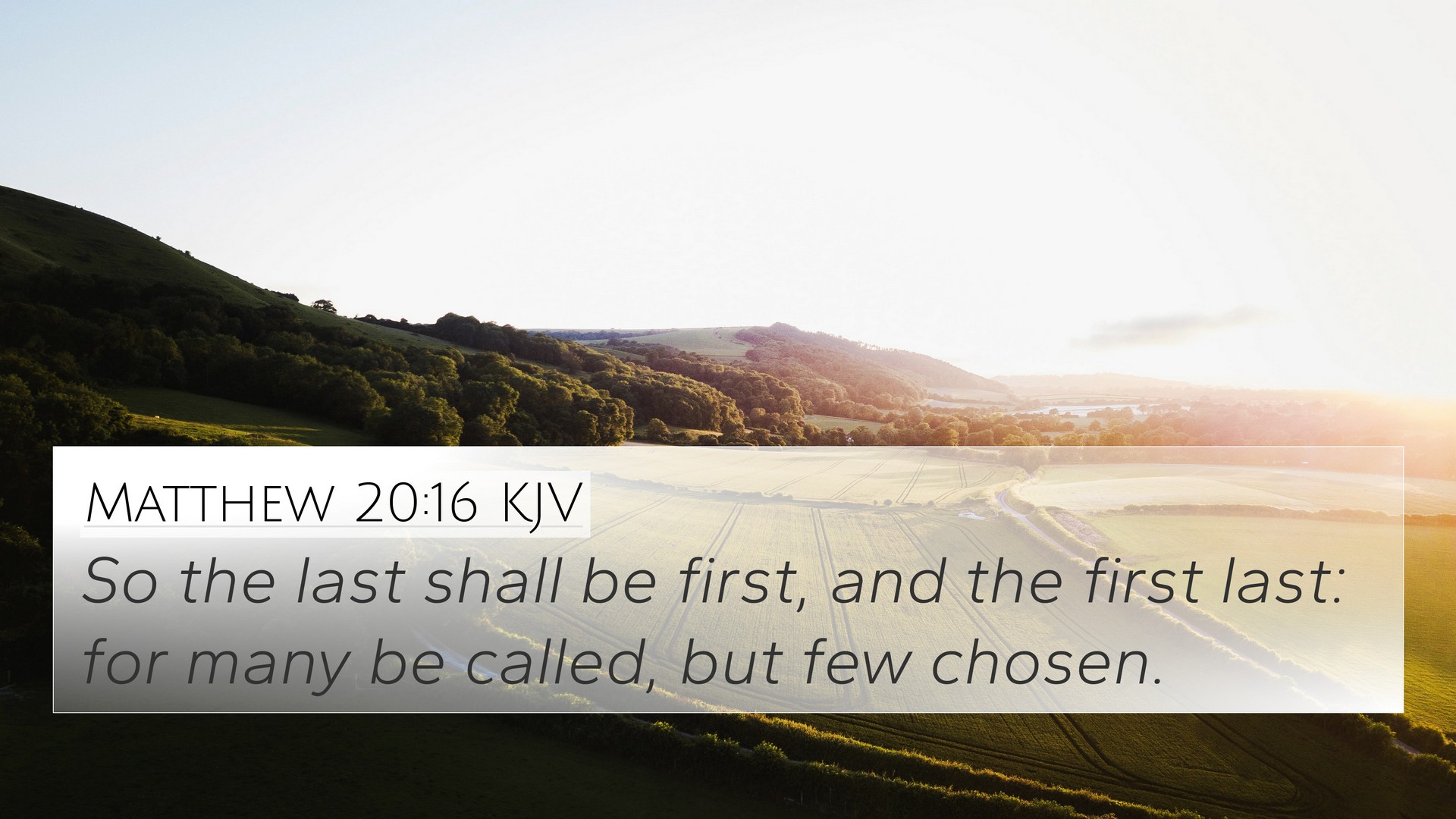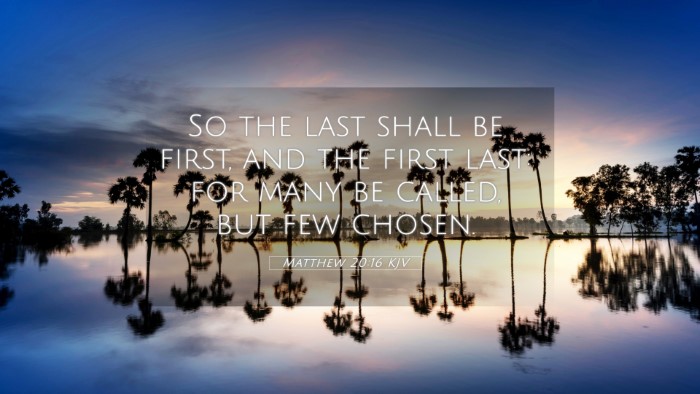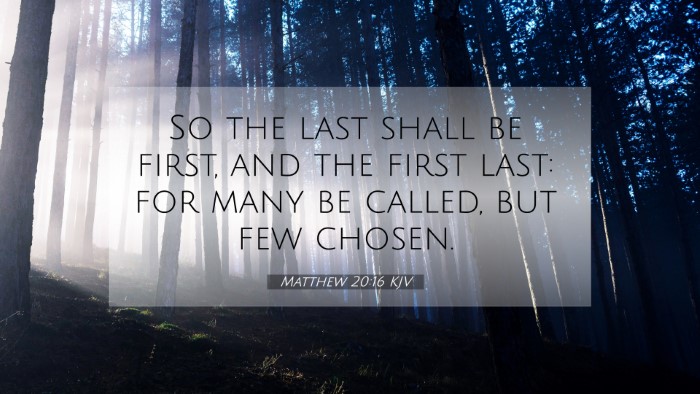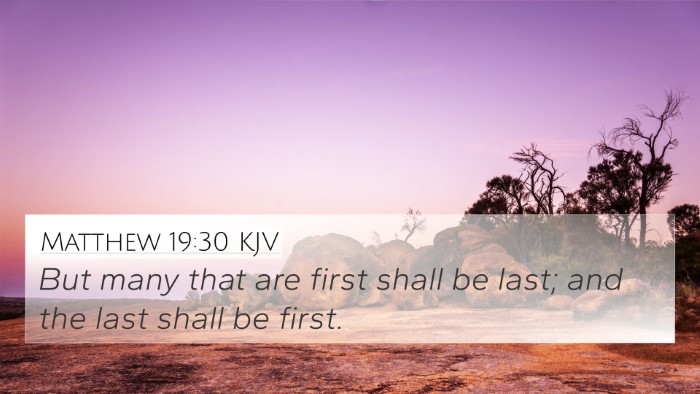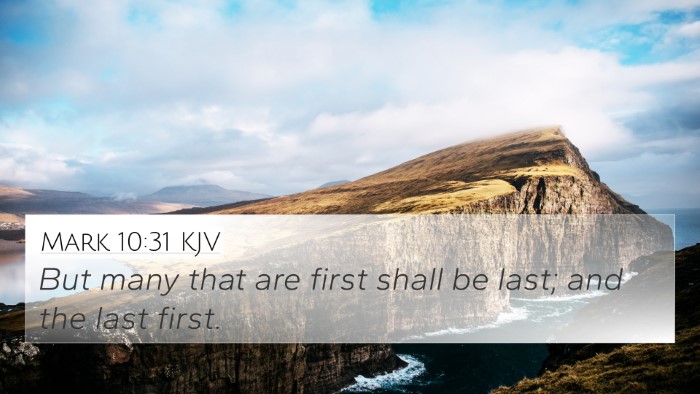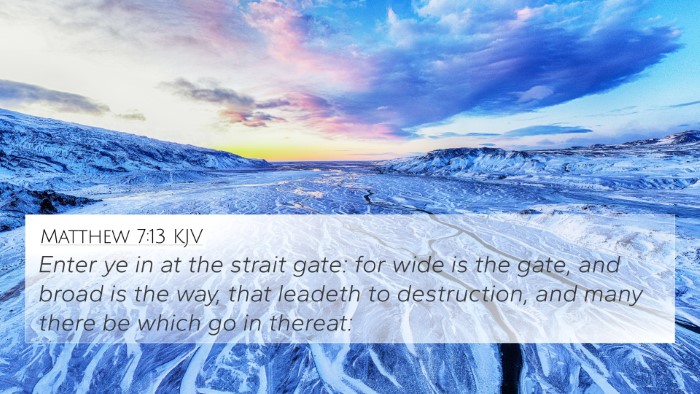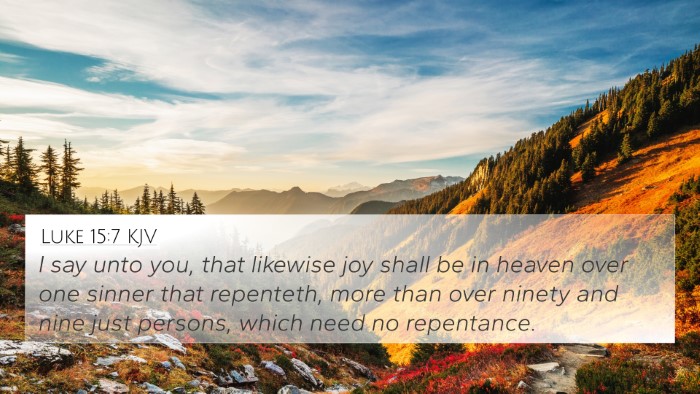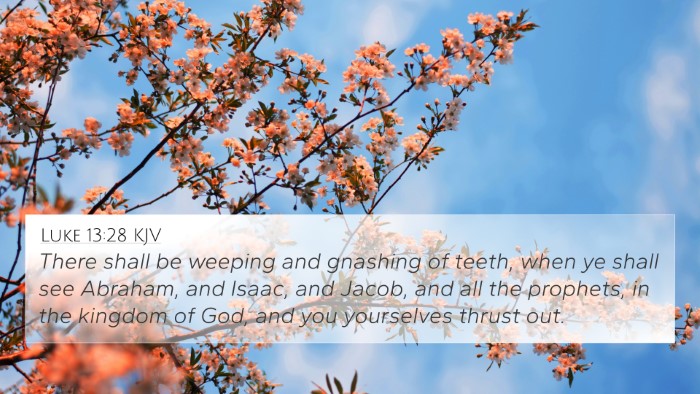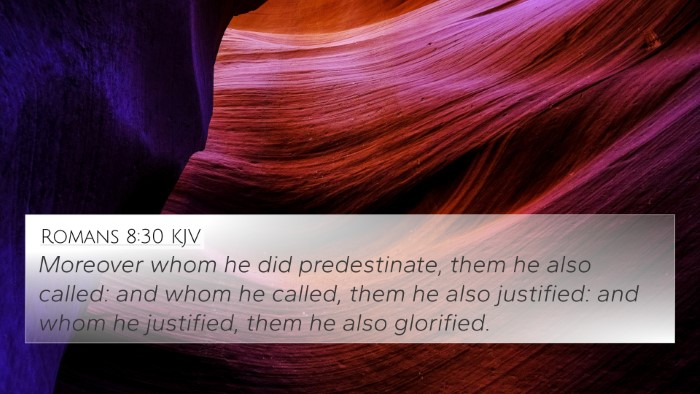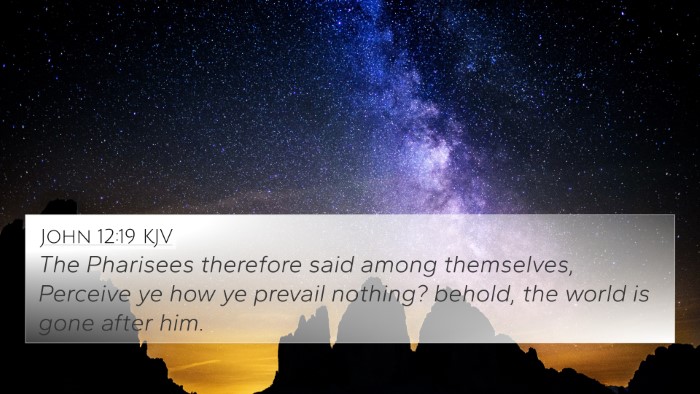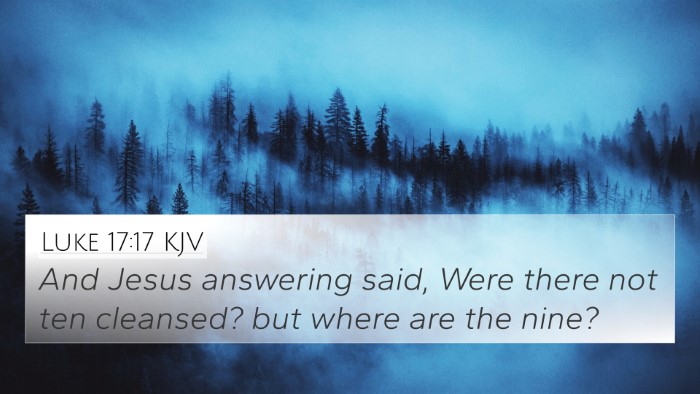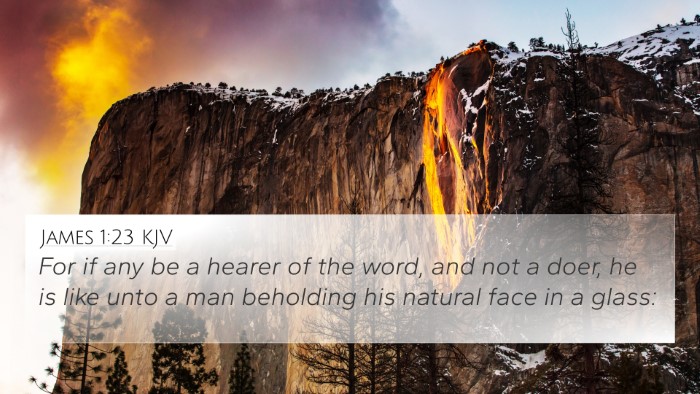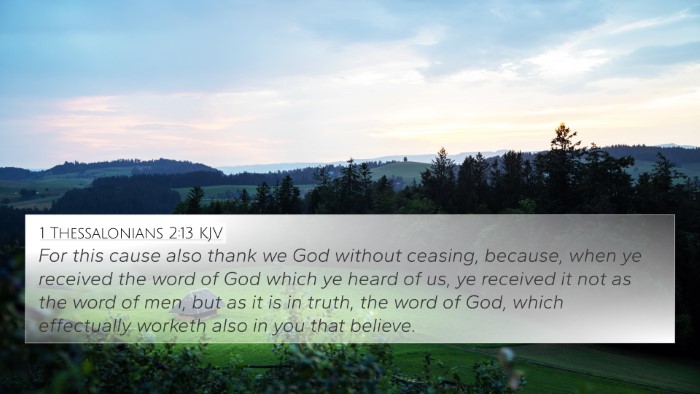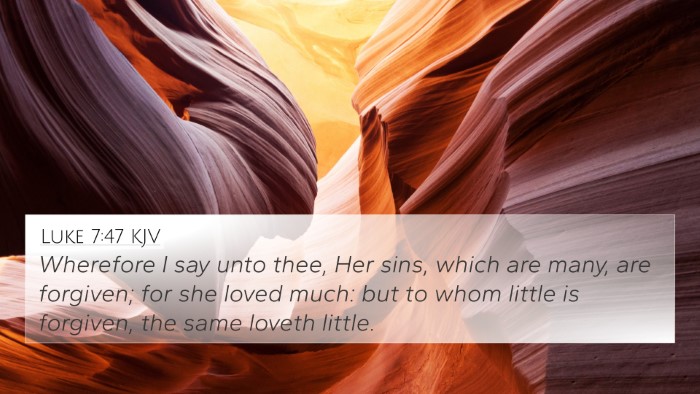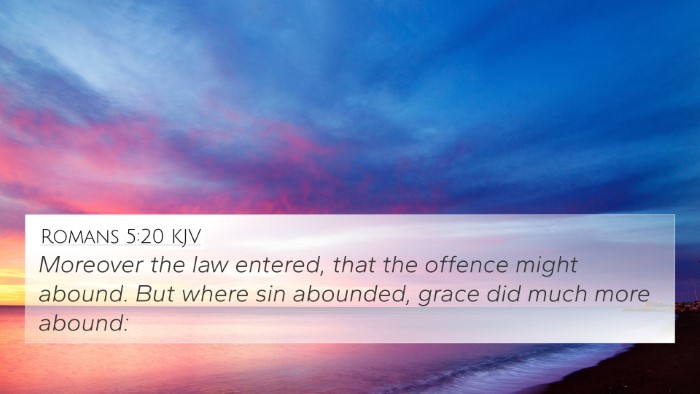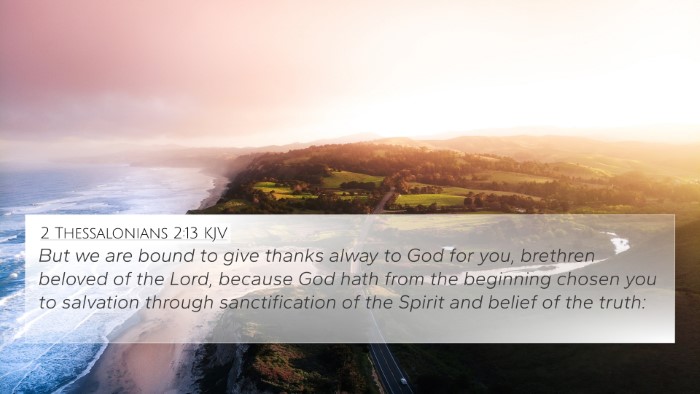Understanding Matthew 20:16
Matthew 20:16 states, "So the last will be first, and the first last. For many are called, but few chosen." This verse concludes the Parable of the Laborers in the Vineyard, illustrating profound spiritual truths about God's kingdom and His sovereign grace.
Context and Interpretation
The verse can be broken down into two primary parts:
- Reversal of Expectations: The phrase "the last will be first, and the first last" embodies a significant reversal in societal expectations. In earthly terms, those who work the hardest or longest often receive the most reward.
- God’s Sovereign Choice: "Many are called, but few chosen" highlights the distinction between the universal call to salvation and God's sovereign selection of those who will respond to that call.
Commentary Insights
According to Matthew Henry, this verse underscores the grace of God that extends to all, particularly those who may be overlooked or undervalued by society. He notes that God’s ways often defy human logic and that His justice and grace operate on a different plane.
Albert Barnes emphasizes that this statement serves as a warning against pride and self-righteousness. The hardworking laborers who expected to receive more were reminded that God's grace is not based on merit but on His unique purpose.
Adam Clarke points out that the 'first' and 'last' refer to classes of people and that God's selection process operates according to divine principles rather than human expectations. He encourages believers to rest in God's choices, which are ultimately for His glory.
Bible Verse Cross References
This verse resonates with several other passages, each providing further understanding:
- Matthew 19:30: "But many who are first will be last, and the last first." – This verse directly links to Matthew 20:16, encapsulating the same theme of reversal.
- Luke 13:30: "Indeed there are those who are last who will be first, and first who will be last." – Reinforces the same message found in both Matthew 19 and 20.
- Romans 9:15-16: "For he says to Moses, 'I will have mercy on whom I have mercy, and I will have compassion on whom I have compassion.' It does not, therefore, depend on human desire or effort, but on God’s mercy." – Highlights God's sovereign choice.
- 1 Corinthians 1:26-29: This passage speaks about God's choice of the weak and foolish things of the world to shame the wise and strong.
- Revelation 3:9: "I will make those who are of the synagogue of Satan who claim to be Jews though they are not, but are liars—I will make them come and fall down at your feet and acknowledge that I have loved you." – Points to God's grace towards those marginalized by society.
- Philippians 2:9-11: "Therefore God exalted him to the highest place and gave him the name that is above every name…" – Illustrates the theme of God exalting the humble.
- James 2:5: "Listen, my dear brothers and sisters: Has not God chosen those who are poor in the eyes of the world to be rich in faith and to inherit the kingdom he promised those who love him?" – Reflects on God's preferential care for the poor.
Conclusion
In summarizing the meaning of Matthew 20:16, we see a powerful illustration of God's kingdom that flips expected norms of reward and merit. This verse serves as a reminder that all who come to Christ, regardless of social standing or works, are invited into His grace. It encourages humility and reliance on God's grace over personal achievement.
The connections between this verse and others enhance our understanding of Biblical themes surrounding grace, mercy, and the nature of God’s kingdom, demonstrating the importance of cross-referencing Biblical texts for deeper insight.
